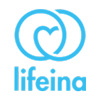

Surviving the Heat: Protecting Fragile Medications During Europe’s 2025 Heatwave


Uwe Diegel
Official Manufacturer of Happiness, medical device designer, investor, pianist, keynote speaker, TEDx speaker, CEO at Lifeina, CEO at HealthWorks July 1, 2025
Europe is burning—not metaphorically, but quite literally. The summer of 2025 has ushered in yet another record-breaking heatwave, threatening lives, destabilizing ecosystems, and placing unprecedented stress on infrastructure and public health. While the media focuses on wildfires and drought, another silent crisis is unfolding in medicine cabinets, coolers, and travel bags across the continent: the preservation of fragile, heat-sensitive medications.
For millions of Europeans living with chronic illnesses such as Crohn’s disease, multiple sclerosis (MS), diabetes, arthritis, and growth hormone deficiencies, this environmental emergency poses a personal, tangible threat. Many of their medications must be stored between 2–8°C to remain effective. In conditions where ambient temperatures exceed 40°C and electrical grids struggle to stay online, preserving this fragile cold chain becomes not just difficult—but essential.
EUROPE'S SCORCHING SUMMER – A HEATWAVE UNLIKE ANY OTHER
As early as mid-June 2025, meteorological agencies issued red alerts across the Iberian Peninsula. Spain and Portugal recorded highs of 46.6°C, while parts of France—including Paris—reached historic temperatures nearing 40°C, triggering nationwide warnings.
According to the European Centre for Medium-Range Weather Forecasts (ECMWF), the heat dome affecting Europe is an intensification of the subtropical ridge system, supercharged by North African air masses. This heatwave has also shown unusual persistence, stretching into central Europe and even threatening typically cooler Alpine and northern regions.
This environmental context has immediate implications for medication stability. Power outages, indoor heat accumulation, and travel disruptions compromise both commercial and personal cold chains. The most vulnerable populations include:
- Children with growth disorders
- Diabetics requiring insulin
- Crohn’s or ulcerative colitis patients on biologics
- MS patients on injectable or infusion-based therapies
- Arthritis patients using TNF inhibitors
- Elderly populations reliant on vaccines or immunosuppressants
WHY HEAT MATTERS – THE SCIENCE BEHIND MEDICATION STABILITY
Most biologic and peptide-based medications are thermolabile, meaning they degrade when exposed to temperatures outside their defined storage range. For example:
- Insulin begins to degrade above 30°C, with efficacy loss after just 1–2 hours at 40°C
- Adalimumab (used for Crohn’s and RA) must be refrigerated; temperature excursions can denature the protein and trigger immunogenic reactions
- MS drugs like interferon beta-1a lose potency and risk contamination if warmed
- Vaccines such as hepatitis B or COVID-19 boosters, require uninterrupted refrigeration to maintain potency
Such degradation isn't always visible. A vial may look normal but contain a medication that is no longer safe or effective.
A FRAGILE PROMISE – CASE STUDY 1: JULIA AND GROWTH HORMONE THERAPY
Julia, a 9-year-old girl from Lyon, was diagnosed with idiopathic short stature at age 6 and has been on daily recombinant growth hormone injections ever since. Her family was due to travel to Marseille during the school holidays.
Two days into their trip, the refrigerator at their Airbnb malfunctioned. Julia’s mother realized the medication had been exposed to high temperatures for nearly 14 hours before discovery. Concerned, she called the manufacturer’s helpline, which advised discarding the full month’s supply.
Because of French regulations and prescription limitations, they were unable to refill locally without bureaucratic delay. Julia missed nine consecutive days of treatment, setting back her therapy schedule.
This experience prompted her family to invest in the LifeinaBox, a compact, smart-powered fridge that ensures storage between 2–8°C and operates on battery, car, or wall plug. It now travels with Julia, whether to school, holidays, or doctor appointments.
TECHNOLOGY TO THE RESCUE – THE SOLUTIONS BY MEDACTIV AND LIFEINA
MedActiv: Reliable Passive Cooling Solutions
www.medactiv.com.auMedActiv has long been a pioneer in cold chain maintenance for pharmaceuticals. Its iCool range includes discreet, airline-compliant cooling bags and medical-grade storage boxes that use phase-change gel packs engineered to maintain temperature between 2 and 8°C stability for up to 36 hours.
- iCool Medicube: Designed for longer trips or emergency preparedness, MediCube keeps sensitive meds within safe range for 36 hours even under hot ambient conditions
- iCool Prestige & Weekender: For everyday or business travel; discrete and practical. 12 to 24 hours between 2 and 8°C
- MedActiv products have been extensively tested in clinical environments and high-humidity zones, ensuring no condensation or sweating that could compromise packaging
Lifeina: Smart Technology Meets Mobility
www.medactiv.com.auBorn from a mission to empower patients with portable medical refrigeration, Lifeina bridges passive and active cooling technology
- LifeinaBox: A small, portable, battery-powered fridge that stores up to 8 pens/vials and offers real-time temperature control via Bluetooth
- LifeinaBag: Insulated, stylish bags with dedicated gel packs for shorter duration trips (12–24 hours)
- Unique features: Real-time monitoring, 18 hour batteries, sleek French design
The combination of MedActiv’s passive insulation technology and Lifeina’s active smart refrigeration offers a comprehensive toolkit for both short-term and long-term heat resilience
CASE STUDY 2 – CARLOS AND CROHN’S DISEASE IN MADRID
Carlos, 35, is a freelance designer in Madrid living with Crohn’s disease. He self-injects adalimumab (Humira) every 14 days, keeping a strict routine and handling all his medication transport personally.
During the July 2025 heatwave, his apartment's cooling system failed for 48 hours. By the time he noticed, the fridge had reached 25°C and his Humira pens were warm to the touch. He contacted his gastroenterologist, who immediately issued a replacement—but his insurer refused to reimburse the €1,200 cost due to “avoidable mishandling.”
Carlos has since shifted to storing his medication in a LifeinaBox and carries an iCool Weekender for day trips or client meetings. He now maintains complete control over his medication temperature, even in unpredictable urban heat.
LESSONS FROM EMERGENCY ROOMS – THE HIDDEN COSTS
In Paris and Milan, hospital emergency rooms have reported a 10–15% rise in patients experiencing disease flares or failed responses to regular medication during the summer surge. Upon review, many were found to have unknowingly used compromised medication.
From insulin-dependent diabetics presenting with hyperglycemia to MS patients experiencing relapse-like symptoms, the root cause often lay not in disease progression—but in biological drug degradation caused by insufficient refrigeration
CASE STUDY 3 – MARTINE AND MULTIPLE SCLEROSIS IN NICE
Martine, a 43-year-old schoolteacher from Nice, uses a weekly injection of interferon beta-1a (Avonex) to manage her relapsing-remitting MS. Like many teachers, she took the summer off and visited family inland. She brought her medication in a soft-sided cooler bag with a supermarket gel pack.
By day three, the pack had melted. Without a thermometer or temperature sensor, she continued storing the drug assuming the room’s AC would suffice. Three weeks later, she suffered a relapse that required corticosteroids and three days of hospitalization.
Her neurologist now recommends all MS patients use either:
- MedActiv iCool Prestige or MediCube: for offline protection
- Or LifeinaBox, which they supply to new patients through a pharmacy partnership
FUTURE-PROOFING THE COLD CHAIN
With climate volatility rising, ensuring medication viability must become a standard health policy objective. Governments and health institutions are beginning to recognize this.
- Never assume a household fridge offers consistent protection during a heatwave. Power fluctuations and faulty seals are common
- Pre-chill all cooling devices overnight, especially gel packs
- Avoid placing medication directly next to freezer walls or blocks—ice burn is just as dangerous as heat
- Use temperature data loggers or the Lifeina mobile app for real-time monitoring
- Inform your pharmacist or prescriber of travel plans or heat-related concerns—they may adjust refill timing or provide backup vials
- Do not open cooling boxes unnecessarily each opening causes internal temperature drift
A CALL TO CLIMATE-CONSCIOUS CARE
Europe’s 2025 heatwave is a wake-up call. Beyond the cracked asphalt and smoldering forests lies another risk—one that sits quietly in refrigerators, travel bags, and kitchen drawers. As we adapt to new climate realities, we must not overlook the hidden vulnerabilities of the therapies that keep millions alive and well.
Thanks to forward-thinking innovators like MedActiv and Lifeina, patients now have access to safe, elegant, and effective solutions for medication preservation in extreme heat. But the burden doesn’t lie solely with companies or governments. Every patient deserves access to tools, education, and awareness.
In the years to come, temperature management will not just be a logistical challenge—it will become a clinical imperative. And those who prepare today will navigate tomorrow with confidence, resilience, and safety.
ABOUT MEDACTIV
MedActiv is a global leader in the development of transport and storage solutions for sensitive medication. Our products are designed to give users the freedom to travel knowing that their medication is kept at exactly the right temperature. As the chosen partner of major pharmaceutical companies worldwide, MedActiv is constantly pushing back the boundaries of this industry.
MedActiv North America www.medactiv.ca MedActiv Europe www.medactiv.com MedActiv South America www.medactiv.cl MedActiv Australia www.medactiv.com.au LifeIna Europe www.lifeina.com
FOLLOW US
- Youtube

Unauthorised duplication or publication of any materials from this Site is expressly prohibited.